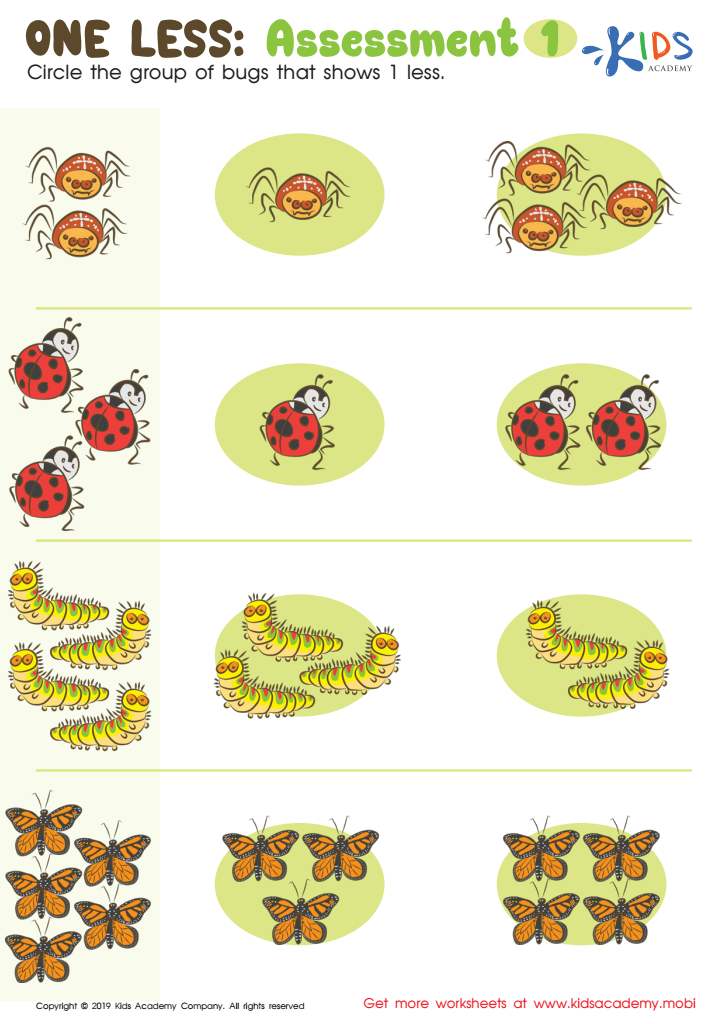Subtraction understanding Worksheets for Kids
1 filtered results
-
From - To


One Less: Assessment 1 Worksheet
Question/Answer
How to test a Preschool student’s Subtraction understanding skills?
To test a preschool student's subtraction understanding, use simple, hands-on activities like removing items from a group and asking the child to count what remains. Incorporate visual tools like counters, blocks, or pictures, and pose questions in a story format to make it relatable. Observe their problem-solving approach and ability to explain the process verbally.
How to train the Subtraction understanding skill in Preschool students learning about Numbers?
To train subtraction understanding in preschool students, start with hands-on activities using physical objects. Begin by counting objects together, then physically remove some and count the remaining items. Use simple, relatable scenarios, like taking away pieces of fruit from a group, to illustrate the concept.
How does the mastery of the Subtraction understanding skill affect a student's performance at an early age?
Mastery of the Subtraction understanding skill at an early age significantly enhances a student's mathematical performance. It forms a foundation for advanced mathematical concepts, improves problem-solving abilities, and boosts confidence in handling mathematical tasks. Early mastery contributes to a solid arithmetic foundation, facilitating smoother progression in mathematics learning and academic achievement.
 Assign to the classroom
Assign to the classroom












